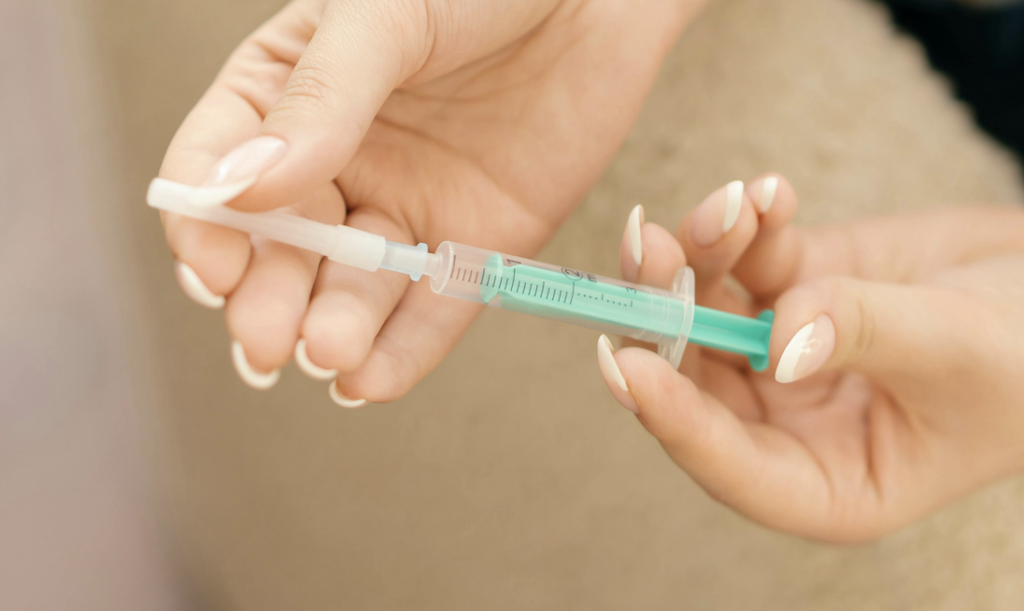TRT and Weight Loss: Can It Help You Shed Pounds?
When it comes to weight loss, beginners often struggle to find a method that works for them. One approach that’s gaining attention is TRT (Testosterone Replacement Therapy) for weight loss. While TRT is primarily used to treat low testosterone levels, it’s also being explored as a potential aid for weight management. But does it work, and is it the right choice for you? In this article, we’ll dive deep into how TRT can affect your weight loss journey, who it’s best suited for, and what you should know before considering it.
What is TRT?
Testosterone Replacement Therapy (TRT) is a medical treatment designed to restore optimal testosterone levels in individuals who have low testosterone (also known as low T). Testosterone is a hormone that plays a critical role in regulating muscle mass, fat distribution, bone density, and even mood.
For people experiencing low T, symptoms can include fatigue, reduced muscle mass, increased body fat, and difficulty losing weight. TRT works by supplementing testosterone levels through injections, patches, gels, or implants.
How TRT Affects Weight Loss
TRT can influence weight loss in several ways. Let’s break it down:
1. Improved Metabolism
Testosterone is closely linked to metabolic function. Low testosterone levels can slow down your metabolism, making it harder to burn calories and shed fat. By restoring optimal levels, TRT can enhance your body’s ability to burn fat more efficiently.
2. Increased Muscle Mass
One of the key effects of testosterone is promoting muscle growth. Since muscle burns more calories than fat, increasing muscle mass can boost your resting metabolic rate, helping you lose weight even when you’re not actively exercising.
3. Reduced Fat Storage
Studies have shown that TRT can lead to a reduction in visceral fat (fat stored around internal organs). This not only improves your physical appearance but also lowers the risk of health conditions like heart disease and diabetes.
4. Enhanced Energy Levels
Low energy is a common symptom of low testosterone. TRT can help increase energy levels, making it easier for you to stay active and maintain a consistent workout routine, both of which are essential for weight loss.
5. Improved Mood and Motivation
Low testosterone is often linked to depression and low motivation. By addressing these issues, TRT can help you stay focused and committed to your weight-loss goals.
TRT and Weight Loss: What Science Says
Several studies have explored the relationship between TRT and weight loss. For example:
- A 2016 study published in The Journal of Clinical Endocrinology & Metabolism found that men undergoing TRT lost significant amounts of fat while gaining lean muscle mass.
- Another study from Obesity Reviews highlighted that TRT reduced waist circumference and improved overall body composition in men with low T.
- Research also suggests that TRT may have a positive impact on insulin sensitivity, which can aid in weight loss for individuals with insulin resistance or Type 2 diabetes.
While these findings are promising, it’s important to remember that individual results can vary based on factors like diet, exercise, and overall health.
Who Should Consider TRT for Weight Loss?
TRT may be suitable for individuals who:
- Have Confirmed Low Testosterone Levels: A blood test is required to diagnose low T. Symptoms alone are not enough to justify TRT.
- Struggle with Weight Loss Despite a Healthy Lifestyle: If you’ve been eating right and exercising consistently but still can’t lose weight, low testosterone might be a contributing factor.
- Experience Symptoms of Low T: These can include fatigue, reduced libido, mood swings, and muscle loss.
It’s essential to consult a healthcare professional before starting TRT to ensure it’s the right option for you.
Potential Risks and Side Effects of TRT
While TRT offers many benefits, it’s not without risks. Potential side effects include:
- Acne and oily skin
- Sleep apnea or worsened breathing during sleep
- Increased red blood cell count, which can elevate the risk of blood clots
- Potential prostate health concerns
Regular monitoring by a healthcare provider can help mitigate these risks.
How to Maximize Weight Loss on TRT
If you decide to use TRT as part of your weight-loss journey, it’s crucial to complement it with a healthy lifestyle. Here’s how:
1. Prioritize Strength Training
Since TRT promotes muscle growth, incorporating strength training into your routine can maximize results. Aim for at least 3-4 sessions per week.
2. Eat a Balanced Diet
Focus on lean proteins, healthy fats, and complex carbohydrates. Avoid processed foods and sugary snacks, which can hinder weight loss.
3. Stay Consistent
Weight loss doesn’t happen overnight. Stick to your TRT regimen and healthy habits for the best long-term results.
4. Monitor Your Progress
Work with your doctor to track your testosterone levels, weight, and body composition regularly. Adjustments to your treatment plan may be necessary based on your progress.
FAQs About TRT and Weight Loss
1. Can TRT Alone Help Me Lose Weight?
TRT can enhance weight loss by improving metabolism and muscle mass, but it’s not a magic solution. Diet and exercise remain essential.
2. How Long Does It Take to See Results?
Most people notice changes within the first 3-6 months of starting TRT. Weight loss may take longer depending on your lifestyle and adherence to the treatment.
3. Is TRT Safe for Women?
While TRT is primarily marketed for men, women with low testosterone can also benefit. However, the dosage and approach differ significantly. Always consult a specialist.
4. Can TRT Help with Belly Fat?
Yes, studies have shown that TRT can reduce visceral fat, including belly fat. However, results are best when combined with a healthy lifestyle.
5. Do I Need TRT Forever?
In most cases, TRT is a long-term treatment. Stopping therapy can cause testosterone levels to drop back to pre-treatment levels, potentially reversing its benefits.
TRT vs. Other Weight-Loss Methods
When comparing TRT to traditional weight-loss methods, it’s clear that TRT is not a replacement but a complementary tool. Unlike fad diets or extreme workout plans, TRT addresses hormonal imbalances that may be hindering your progress. However, it’s essential to view it as one piece of a larger puzzle that includes proper nutrition, exercise, and self-care.
Final Thoughts: Is TRT Right for Your Weight Loss Journey?

TRT for weight loss offers an exciting opportunity for those struggling to shed pounds due to low testosterone. By improving metabolism, muscle mass, and overall energy levels, it can provide the boost you need to achieve your goals. However, it’s not for everyone. Consulting a healthcare professional is crucial to determine if TRT is safe and effective for your needs.
If you’re ready to explore TRT, pair it with a healthy lifestyle to maximize results. Remember, sustainable weight loss is a marathon, not a sprint—and TRT can be an invaluable tool to help you cross the finish line.


